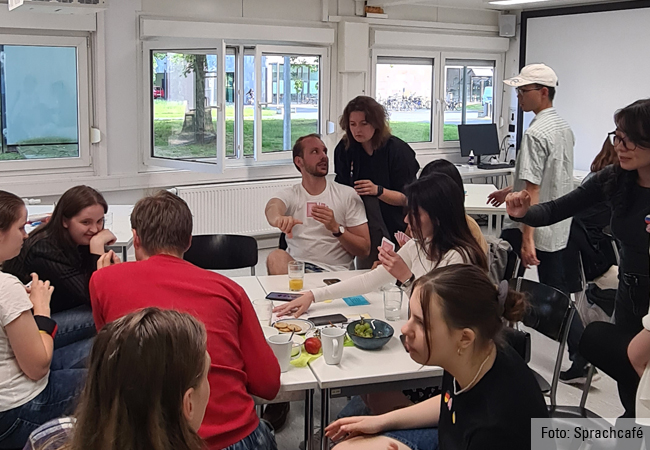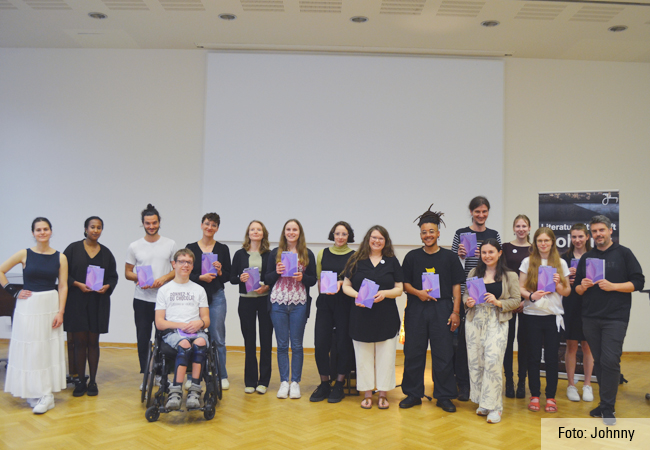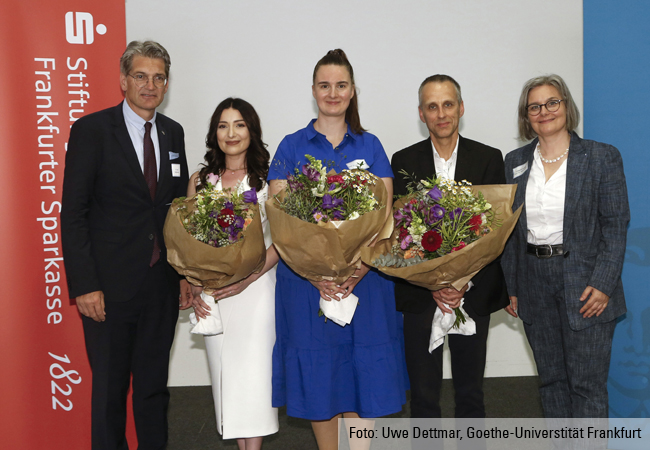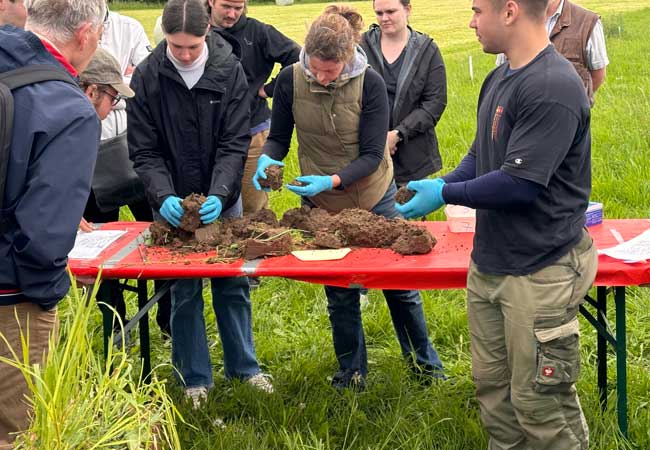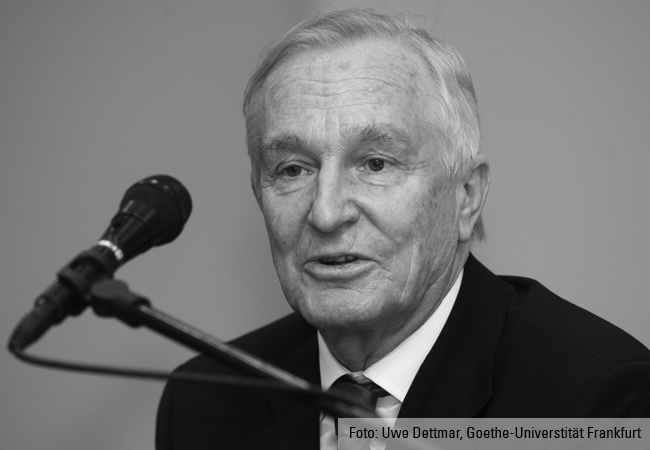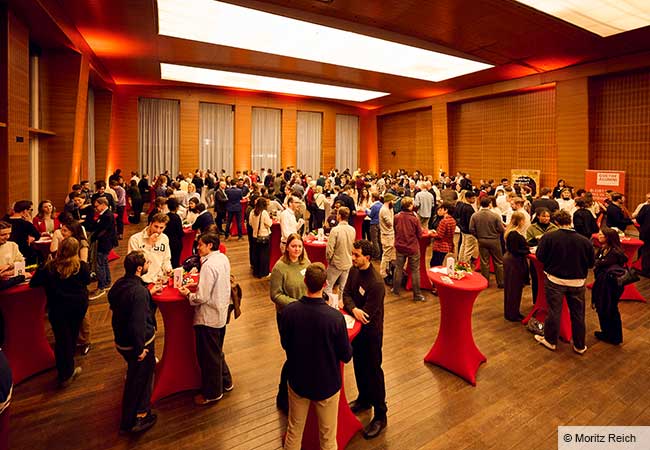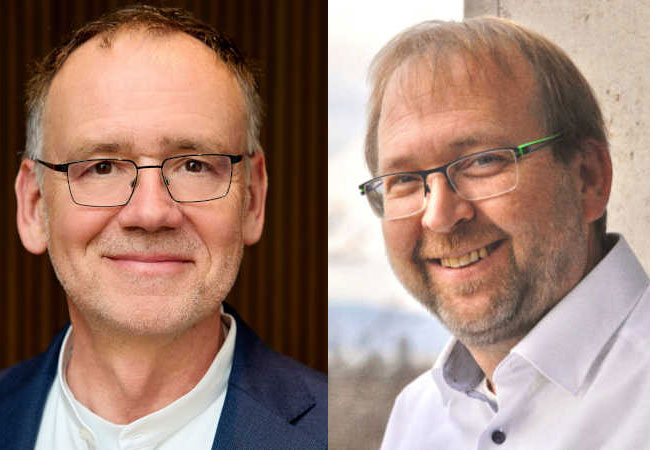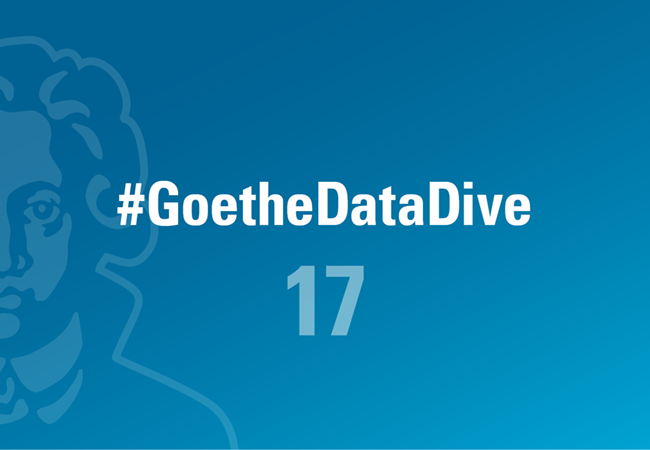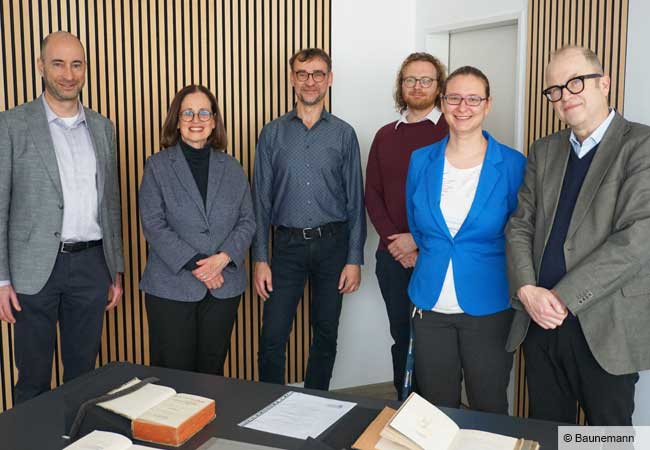Students’ Volunteering Day highlights the activities of student initiatives and student councils at Goethe University Frankfurt.
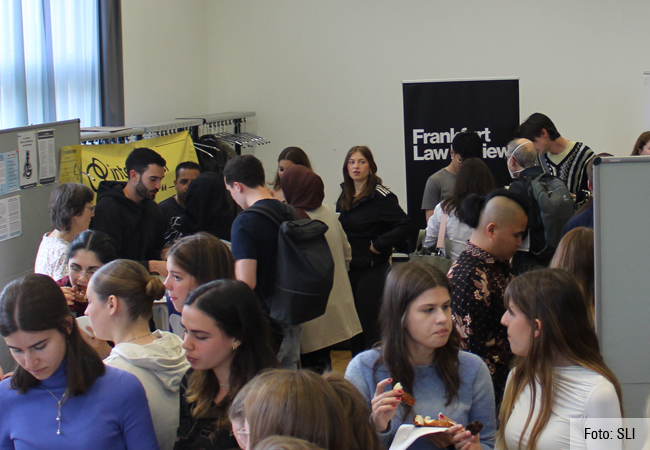
The “Students’ Volunteering Day – market of opportunities” was held in the Westend Campus cafeteria building at the end of May. Student initiatives, student councils and groups from specific institutes presented their work and exciting projects, preceded by short lectures and followed by intensive networking.
Johanna Scheel, academic coordinator of the Goethe Orientation Course for the humanities and social sciences, guided visitors through the event. Dr. Susanne Jauernig, Coordinator of University Engagement and Volunteering at the Global Affairs Study and Teaching division, presented the new online portal for student volunteering and explained the infrastructure for initiatives and student councils. Her colleague Antonia Winkler showed a brief analysis of student volunteering based on the 2022/23 student survey. Stefan Wender from the division’s degree program development and evaluation outlined how students can become involved in evaluations, committee work, commissions and the degree program development. What influence can students exert on the selection of a new professor, for example? How can they influence the curriculum?
The student councils and their wide-ranging activities were described by Simon Baumgart, coordinator of the student councils’ conference (FSK): the student councils consist of students who are active in the university bodies representing students’ interests; they organize orientation events and cultural events, and act as contacts for their fellow students. The student councils and institute-based groups have a very noteworthy presence on social media, including on Facebook and Instagram, as Baumgart emphasized. “At Global Affairs Study and Teaching, we try to include all student councils – as well as initiatives and other participation options – on our website for student volunteering, and to keep the information up-to-date. This is particularly important for students who’ve just enrolled, to give them good orientation and an easy point of contact,” Dr. Susanne Jauernig pointed out.
Some 80 students attended the “Volunteering Day”, which offered them the opportunity to get to know 11 student initiatives as well as numerous representatives of the student councils and institute-based groups in person. The event was bursting with variety: the students covered mobile noticeboards, walls and round tables with posters, roll-ups and information materials, and presented each of their projects and activities in a two-minute pitch. The initiatives ranged from sustainability projects to social activities to media and literature, meaning there was something for everybody.
From mentoring to radio programs
Balu und Du runs a continuous mentoring program fostering equal opportunities and educational equality among elementary school kids. Integreater also focuses on educational equality and concentrates on schoolchildren with a migration biography; the objective is that authentic role-models will motivate young people on their educational path. The motto here is, “If we’ve done it, you can do it, too!” Arbeiterkind also promotes integration: it provides individual advice to schoolchildren and students from families without any university experience about getting started in higher education. The Finance Class addresses children’s financial skills, thus filling a large gap in school education – because anyone who hasn’t learned to handle their finances is destined to be at a disadvantage in society. Sustainable solutions are the focus of the student initiative Infinity. It aims to provide sustainability-related skills and knowledge in social projects tackling current challenges in society. The initiative Zivilklausel poses critical questions about research and teaching, the purposes they should serve and the ones they should not. It calls for teaching, research and studying to serve only civilian and peaceful purposes. Just how complicated it can be to discuss big political issues, let alone reach decisions, is demonstrated by the initiative MainMUN, a simulation of how the United Nations works. Students and high school seniors adopt the roles of diplomats, journalists and lobbyists, and elaborate resolutions on a range of topics, e.g. the human rights situation of refugees. In a sense, the Critical Genomics initiative is also concerned with changing perspectives. Its goal is to discuss the results and utilization of findings from the life sciences in conjunction with the humanities so that these two fields can learn from each other. Studying a subject at a university means making one’s work available to some kind of public at some stage, at least within the subject. The initiative Frankfurt Law Review aims to make students of law visible. They can publish selected works in a specialist student journal. The Literaturzeitschrift Johnny initiative has been pursuing a similar aim for 10 years now; it showcases creativity by enabling artists of various sorts to publish short pieces of prose, poems, photographs and drawings. Radio Dauerwelle is a student voice at the university that not only produces and broadcasts podcasts and films; in its creative workshop students can also acquire technical and editing know-how.
The information session and pitches were followed by intensive networking and getting to know one another at tables, mobile noticeboards and not least the buffet, where visitors and hosts could engage in individual discussions over snacks and drinks.
The Volunteering Day gave all participants lots of ideas and lent visibility to the initiatives, projects and volunteers. The range of activities is huge and visitors could feel the joy and dedication with which the protagonists pursue their activities. Very much in line with the motto “Come and join us!”, student initiatives and student councils are hoping to generate more interest. Goethe University Frankfurt also wishes to continue supporting students’ shared commitment and their involvement in shaping university-related topics and processes in commissions and other bodies. The Students’ Volunteering Day will take place again in the spring of next year. All students are invited to join in!
Susanne Jauernig,
Global Affairs Study and Teaching


